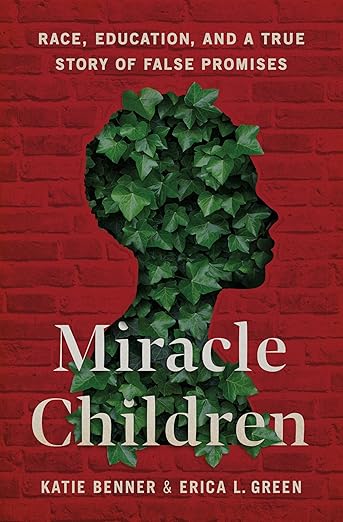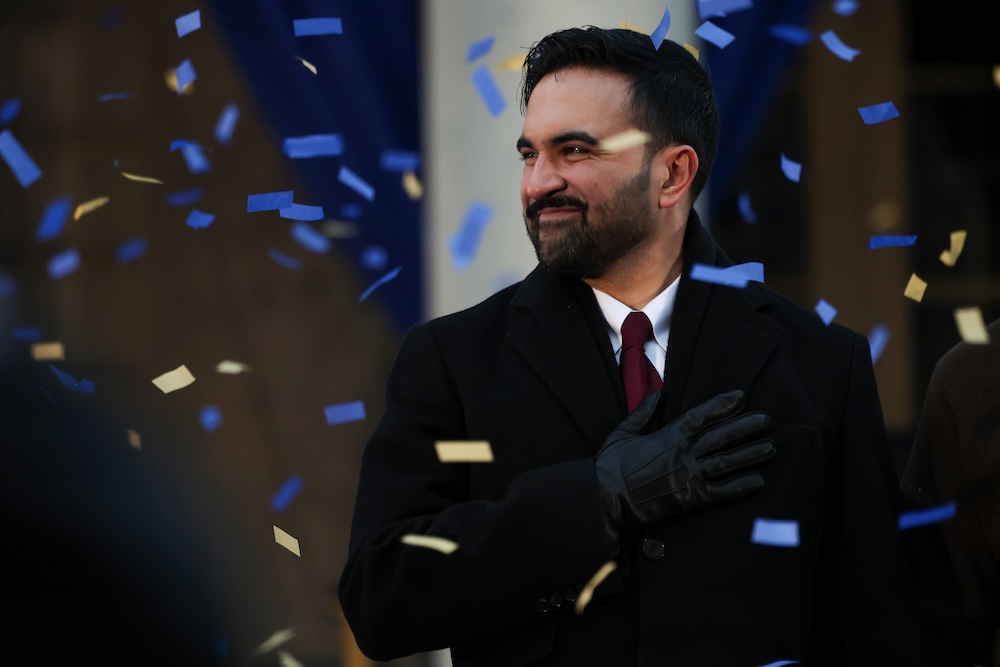Telling a Story on Stage and Screen: Director Tina Satter ’96 Visits Campus
By Tom PorterThe dialogue may be the same, but the process couldn’t be more different, said Tina Satter ’96 on a recent visit to campus. The filmmaker and playwright was comparing her recent movie Reality to the stage version that preceded it, Is This A Room.
Both tell the story of Reality Winner, the intelligence analyst and whistleblower jailed for leaking secrets about Russian interference in the 2016 US election. The play and the film depict Winner’s arrest and interrogation over one afternoon.
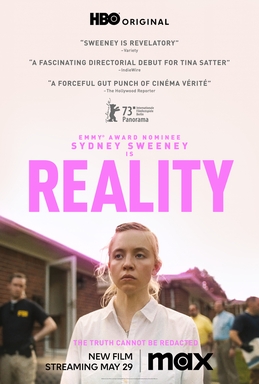
The dialogue was taken directly from a transcript of the interrogation. Satter came across the transcript a few years ago after reading a lengthy online article about Winner in New York magazine in December 2017. Her reaction, she said, was “Wow! This person is fascinating.” The article linked to another site, which is where Satter encountered a pdf file of the verbatim transcription. “‘This looks like a play,’ I thought,” said Satter. “I was on the edge of my seat reading it. There was even a character called ‘unknown male!’”
It was June 2017 when Reality Winner, a former Air Force linguist who speaks three Afghan languages and is now working as an intelligence contractor, arrived at her home in Augusta, Georgia, to be confronted by two FBI investigators. The ensuing conversation is both mundane, as Winner chats with the officers about her pets and her fitness regime, and increasingly chilling, as the gravity of the situation becomes apparent. She was arrested and charged under the Espionage Act, pleading guilty the following year to leaking classified documents to the media. Winner was sentenced to more than five years in prison and ended up serving four.
After the success of the stage play, which won numerous awards, Satter decided to move the story to the big screen. “One of the reasons I wanted to make a film is to focus more on the setting, which was fascinating,” Satter told students. “The camera allows us to home in on fine details, such as the ephemera in Reality’s bedroom and her weird car stickers, getting us close to this young woman, whose life is changing forever in front of us.”
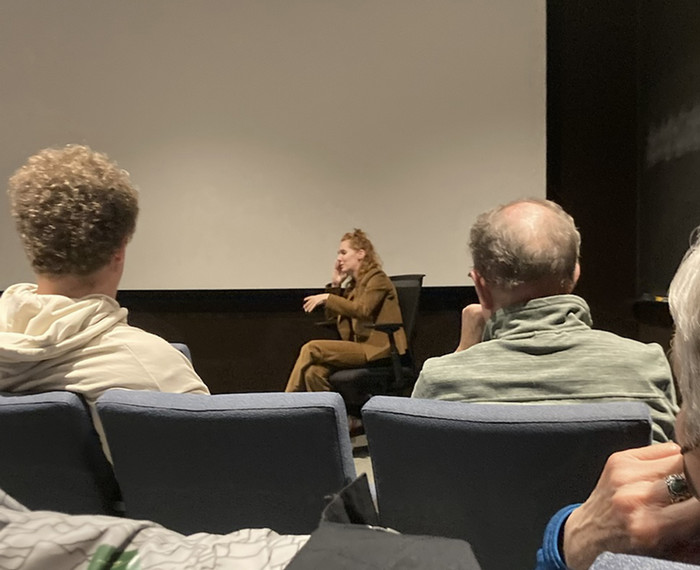
Both of the actresses who portrayed Winner were extraordinary in their own way, said Satter, who herself won a Guggenheim Fellowship in 2020. Emily Davis spent an uninterrupted hour on the stage during the play, which is a real feat of endurance, said Satter. “Her performance was truly athletic, requiring a high-level breath control to stay on the right emotional track.” Sydney Sweeney’s screen performance, meanwhile, was very “emotionally smart,” requiring repeated bouts of intensity. Sweeney got to know her character inside out and was able to conjure her up in every scene over three or four takes. “You put the camera on Sydney, and she’s going to keep delivering.”
After hosting a screening of Reality in front of the Bowdoin community, Satter stayed around for a Q&A with students. She also sat in on a couple of classes during her March 27–28 visit. “It was very cool to be able to watch a movie and then talk to the director straight afterward,” said Owen Smiley ’25. “To hear her insight was pretty awesome.” Anna Cox ’24 was surprised how willing Satter was to discuss so many details of the filmmaking process. "I expected her to keep her film secrets close to her chest!”
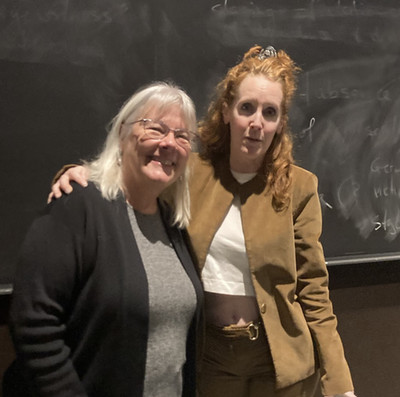
Cox and Smiley are both students of Professor of Cinema Studies Tricia Welsch, who invited Satter to campus. “Tina was a thoughtful and generous guest. She answered all the questions the students asked—about casting, about presenting a living subject’s story with integrity, about translating her play into her first film—directly and with insight. She also described how her participation in college athletics taught her about collaboration and being fully prepared—skills she uses all the time in her work as a film and theater director.”
As well as attending one of Welsch’s classes, Satter sat in with students of Professor of Theater Davis Robinson, something Nikki Harris ’26 described as a “fabulous” experience. “Tina had each of us write a scene of dialogue from a conversation we'd had in our real lives and then perform some of those scenes in groups, giving us really interesting notes on physical movement and staging. It made me more sensitive to the ways physicality and distance can change a scene's meaning. I also loved learning about entry into theater,” added Harris, “because her experience seems so untraditional for someone so successful. Even after she first started trying theater in Portland, Oregon, in her twenties, she still wasn't sure she wanted to do it professionally.”
First-year Micah Sher was also struck by Satter’s personal story. “Learning about the theater group she created, Half Straddle, was inspirational because it proved that not everything in life is clear and figuring out your passions can take some time. Additionally, the script writing activity that we did in class allowed us to see a little behind the scenes of what it is like to write a screenplay and direct our own piece of work.”
“Having Tina here to talk to students in my acting class about theater, filmmaking, and the journey from an English major at Bowdoin to making a hit movie for HBO was so inspiring,” said Robinson. “She was so generous with her time and enthusiastic when talking to them, even about what life was like at Bowdoin when she was here. A great visit all around.”
